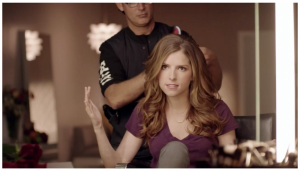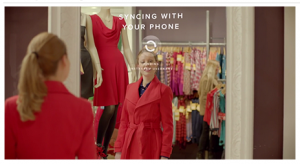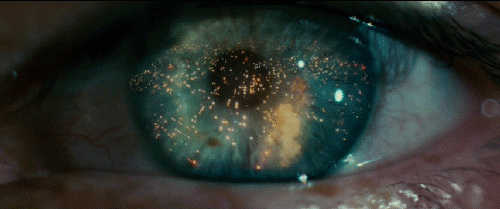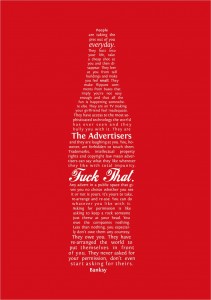 ICYMI – According to Whiteops: Methbot a Russian run ad scam has made over USD $3-5 million per DAY over the past month amounting to over $200M in fraudulent ad revenue by tricking algorithms and mimicking legitimate US web traffic. Though this is an expensive and temporary hiccup (some advertisers who have identified the fraud traffic have gotten their money back), it is one that has gotten the attention of the big players and will hopefully lead to a stronger online ad bidding system with greater transparency and increased efficiency. That said, one of the key takeaways for me is the over reliance on automation and the lack of relationship based selling in the ad space. There will always be imposters when the transactions are automated and the players are not vetted. Not to mention that automation is an oft used reason to explain away poor due diligence.
ICYMI – According to Whiteops: Methbot a Russian run ad scam has made over USD $3-5 million per DAY over the past month amounting to over $200M in fraudulent ad revenue by tricking algorithms and mimicking legitimate US web traffic. Though this is an expensive and temporary hiccup (some advertisers who have identified the fraud traffic have gotten their money back), it is one that has gotten the attention of the big players and will hopefully lead to a stronger online ad bidding system with greater transparency and increased efficiency. That said, one of the key takeaways for me is the over reliance on automation and the lack of relationship based selling in the ad space. There will always be imposters when the transactions are automated and the players are not vetted. Not to mention that automation is an oft used reason to explain away poor due diligence.
Using science for marketing goals.

Ever seen a person act irrationally. Well there might be a simple age old answer to that.. behavioral bias.
Marketers can take advantage of a hardwired ancient bias in all human beings. Which for one associates a great weight on losses versus gains. Ever wondered why fear is a greater sales agent than happiness, wonder no more.
Ever wondered why we prefer half a gift right now rather than one tomorrow but if offered the same gift in the future with a one day delay for half vs full gift we prefer to wait the extra day in the future. Defies logic doesn’t it.
The evolutionary answer would point towards the fact that mistakes could easily lead to death in prehistoric times (before we had a written history that might assist in remedying mistakes) and hence our minds are hard wired and allocate a greater importance to errors as a survival mechanism.
Why we do what we do and why it doesn’t always make sense!
Our hard-wired ancient behavioral biases make us act in irrational ways but once understood they can be used to influence decision making. E.g. Losses have a greater impact on our decision making than gains. To quantify it we need twice as much of a gain to offset half as much of a loss. This is a relic of the fact that in prehistoric times, mistakes could easily lead to death and hence our minds have been evolutionarily coded to allocate a greater emphasis on remembering mistakes and avoiding them in our decision making. For marketers that translates as fear is a greater sales agent than happiness.
Superbowl hysteria gets a kick in the B****s

Content will always be king. A classic example of how to ride on superbowl hysteria without paying the price for it. Mocking superbowl hysteria should be every ad creative’s first route but gets discarded because it would be biting the hand that feeds it. Kudos Droga5 & Newcastle for having the bollocks!
The Near Future.
 Nowadays Big Data seems to be the buzz word of the year! We hear how it’s going to change our lives and change the way marketers address consumers.
Nowadays Big Data seems to be the buzz word of the year! We hear how it’s going to change our lives and change the way marketers address consumers.
One of Big data’s most important applications for marketers is that it uses consumer data (buying habits, location, routine, routes etc) to better target and better inform (relevant) consumers about deals, sales, location based needs (umbrella’s for a sudden rain shower, water fountains on heat-wave days, mall maps downloaded to your phone etc.)
Privacy concerns will have to be addressed and marketers will have to learn the fine line between helpful and creepy (there will surely be some mis-steps).
Ogilvy (my old agency) gives you a peek into the near future (all the technology shown in the video is up and running) and how big data will manifest itself into users lives once companies have fully integrated it.
A bit heavy on the consumerism but that’s a bigger debate.
Banksy’s take on Advertising
Being an Adman myself, I can understand Banksy’s ire at the profession.
It can at times be a hollow one filled with it’s fair share of insecure individuals who are over-compensating for that insecurity with imaginary renditions of beauty, society, family anything we aspire towards. Working in advertising you’re always told the one secret to success is flexible morals. Seems like a sad way to make a living!
Advertising makes creatives a tad bitter too, cause it’s perhaps one of the few creative arts where the creator is not free to do as he/she pleases. Rather they must take instructions and perform to someone else’s subjective preferences i.e. The Client.
Artists, Musicians, Film Makers have the majority of creative control and final say on their work. In advertising that final control lies with the client and as you can imagine it breeds frustration and resentment.
In advertising’s defense though, I think banksy is giving it too much credit for influencing the public at large’s perceptions. IMHO there is a backlash to advertising and it’s messages. We have or are soon reaching a point where advertising messages are droned out and no longer the influencers they once were. Societal norms are changing and admen are no longer defining them but chasing them.
The credibility of advertisers has taken quite a beating in this media messaged generation, nothing a brand puts out is taken as gospel. In fact it is put to intense scrutiny and suspicion cause consumers are savvy enough to realize that a brand’s not paying for (media) messages that do not serve it’s purpose. Dove never ran a negative testimonial, Car companies never publicize their failures, FMCG companies don’t talk about the health hazards.
But now they all are – Coke has an ad that speaks about it’s initiative to control diabetes in America, McDonalds wants to answer questions about its food, Dove wants women to be themselves, the list is long and Hooray for that!
Lessons for Ad Agencies!
The reasons behind the death of advertising is very similar to the story of the boy who cried wolf one to many times.
Over the years bogus claims and the ample use of the * has made consumers have no faith in the marketing communication of companies.
Why should they trust any claim made in an ad that is paid for, made by and distributed with the companies funds?
It’s about time ad agencies realized this and became moral custodians of the products and the communication they use to advertise them. It’s important to tell a client when their claims are only marginally true and often misleading. Cause this will hurt the brand the most in the long run.
But sadly today ad agencies are seen more as vendors and not as partners.
This leads to a “shut-up and do it our way” mentality on the clients end and a “Do it or else the client will go to some agency that does” on the agencies end.
In all honesty both parties are guilty of focusing on short term gains at the expense of long term success. It is important for the client to understand this and it is the ad agencies duty to make them understand.
A marketing manager wants to change his job every 3-5 years. A brand wants to stay in business for much longer. If an agency desires a long term relationship with the brand, it must understand and communicate this conflict of interest.
A brand might move to PR, seen as significantly more believable, but an ad agency will cease to be an ad agency.

